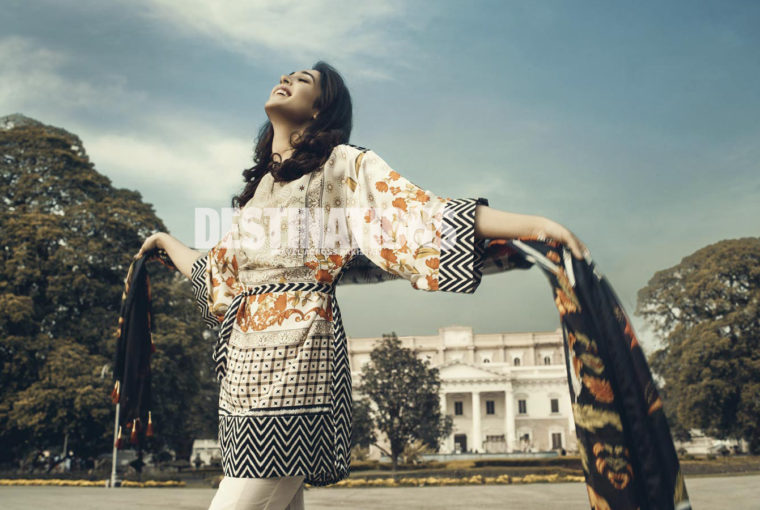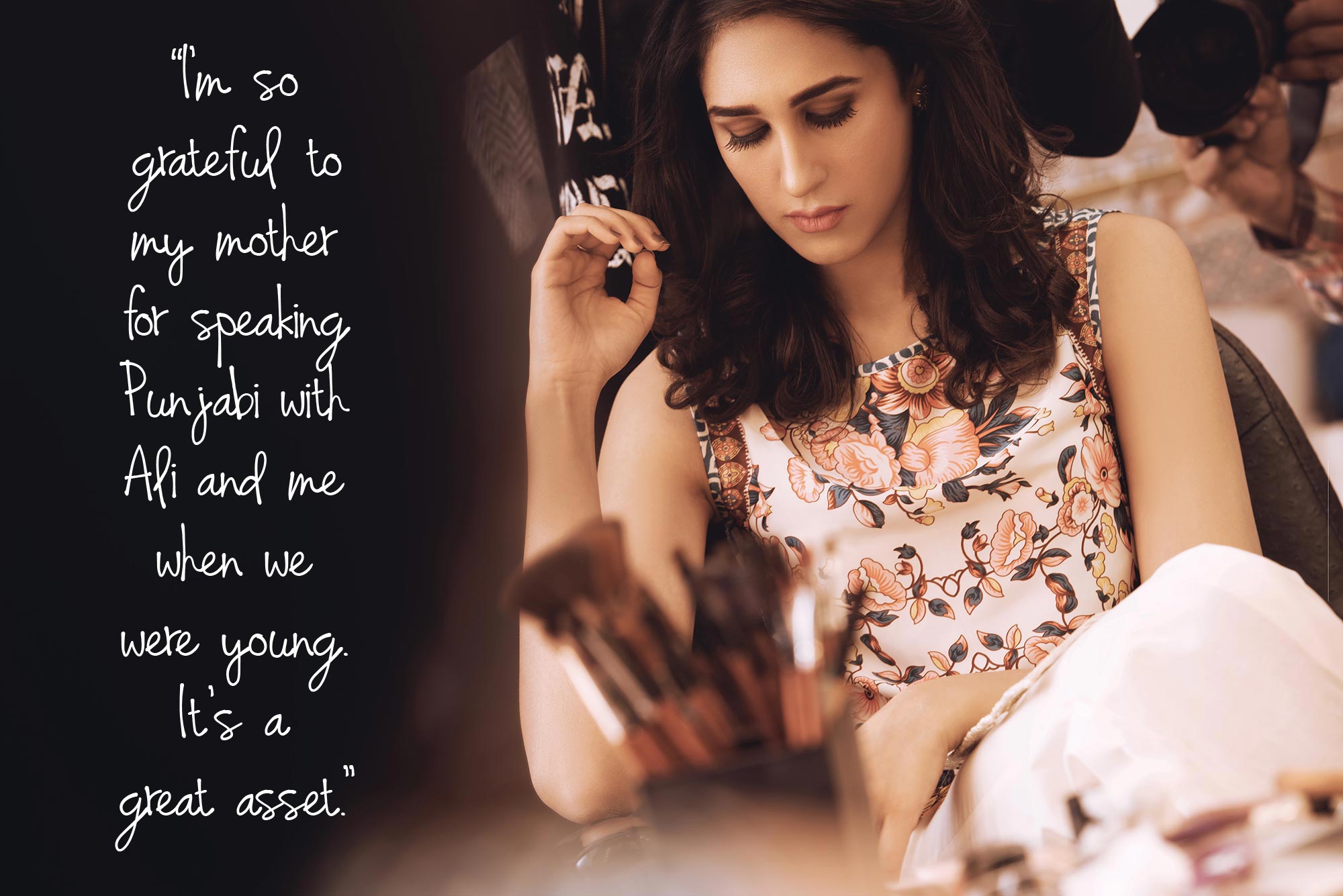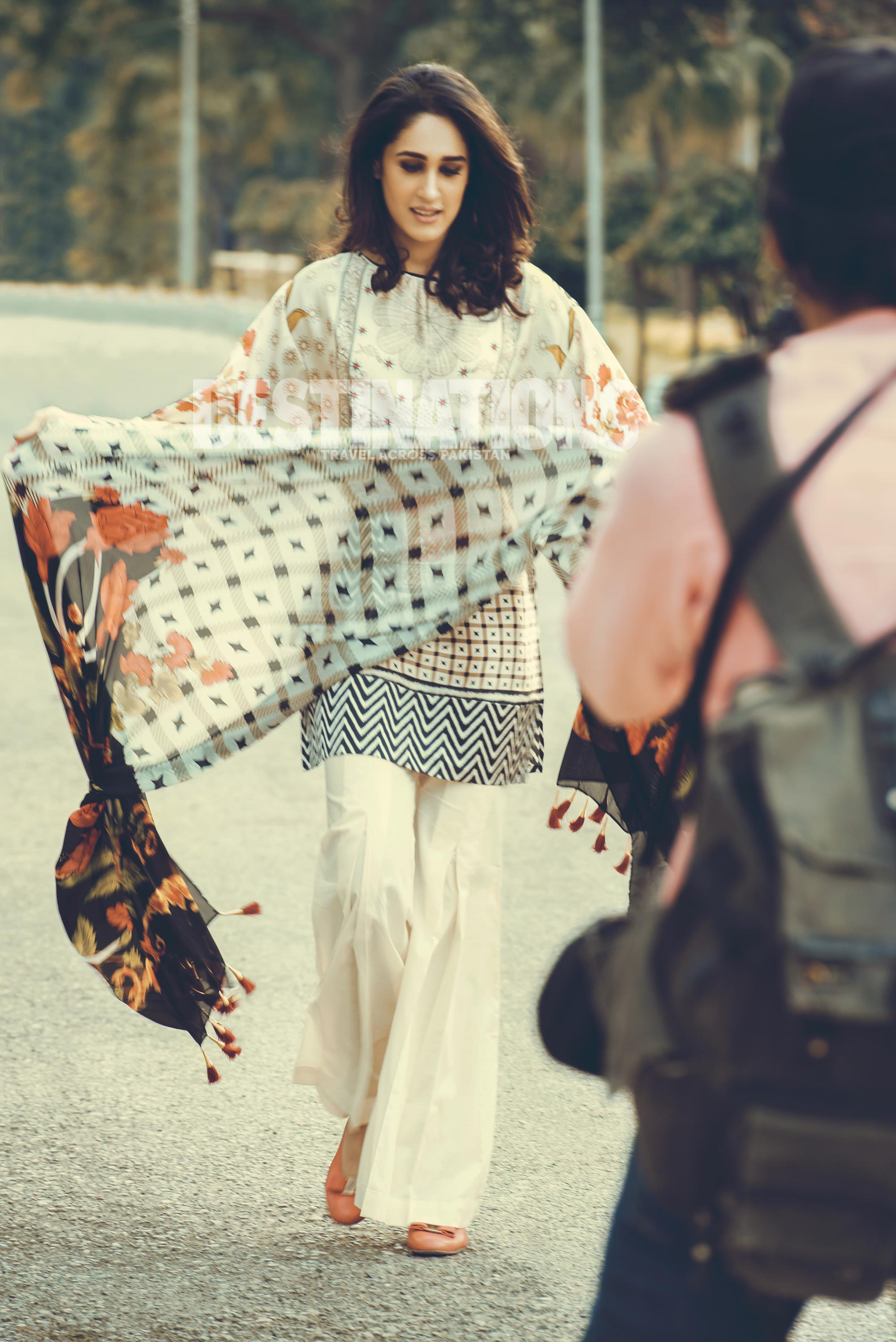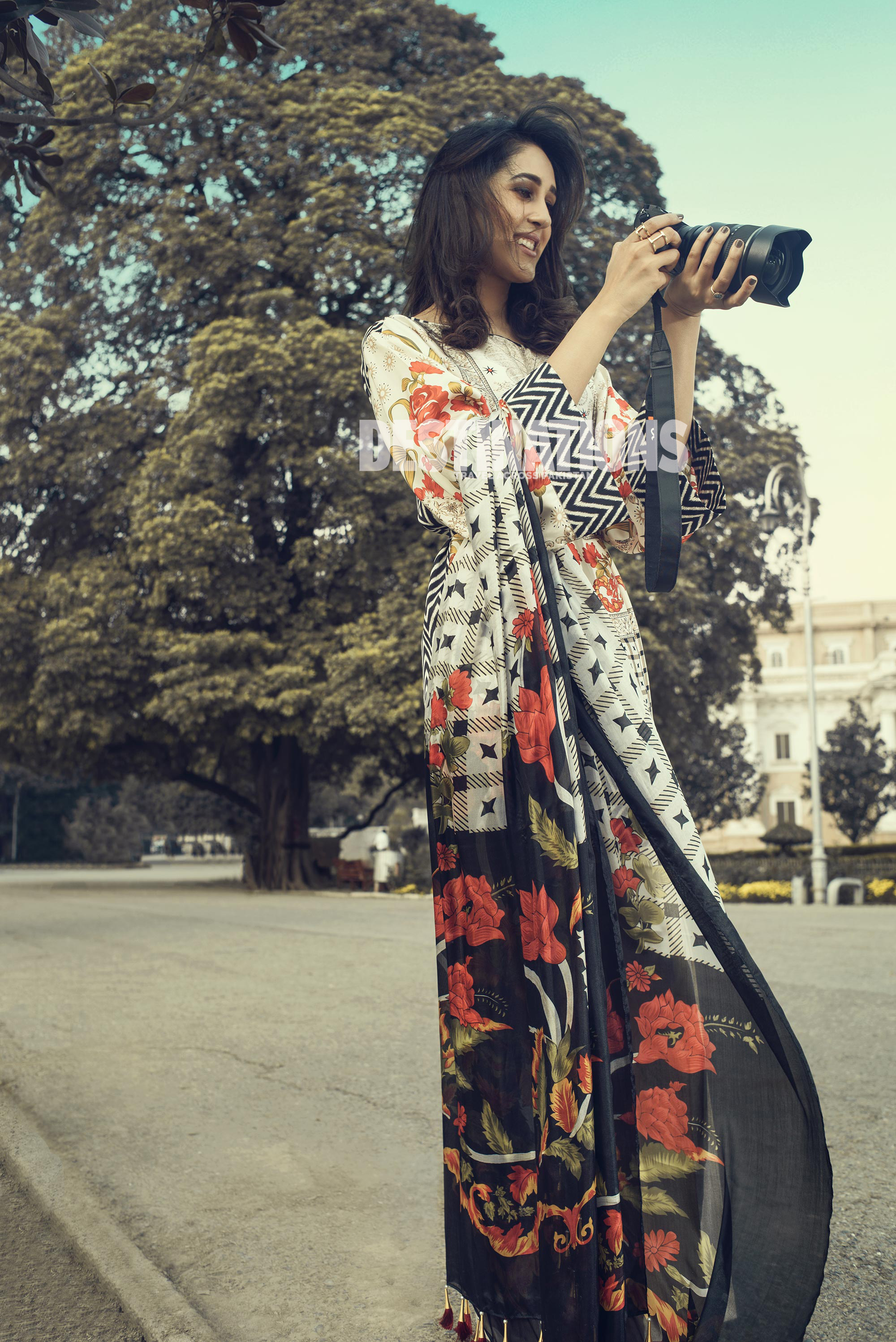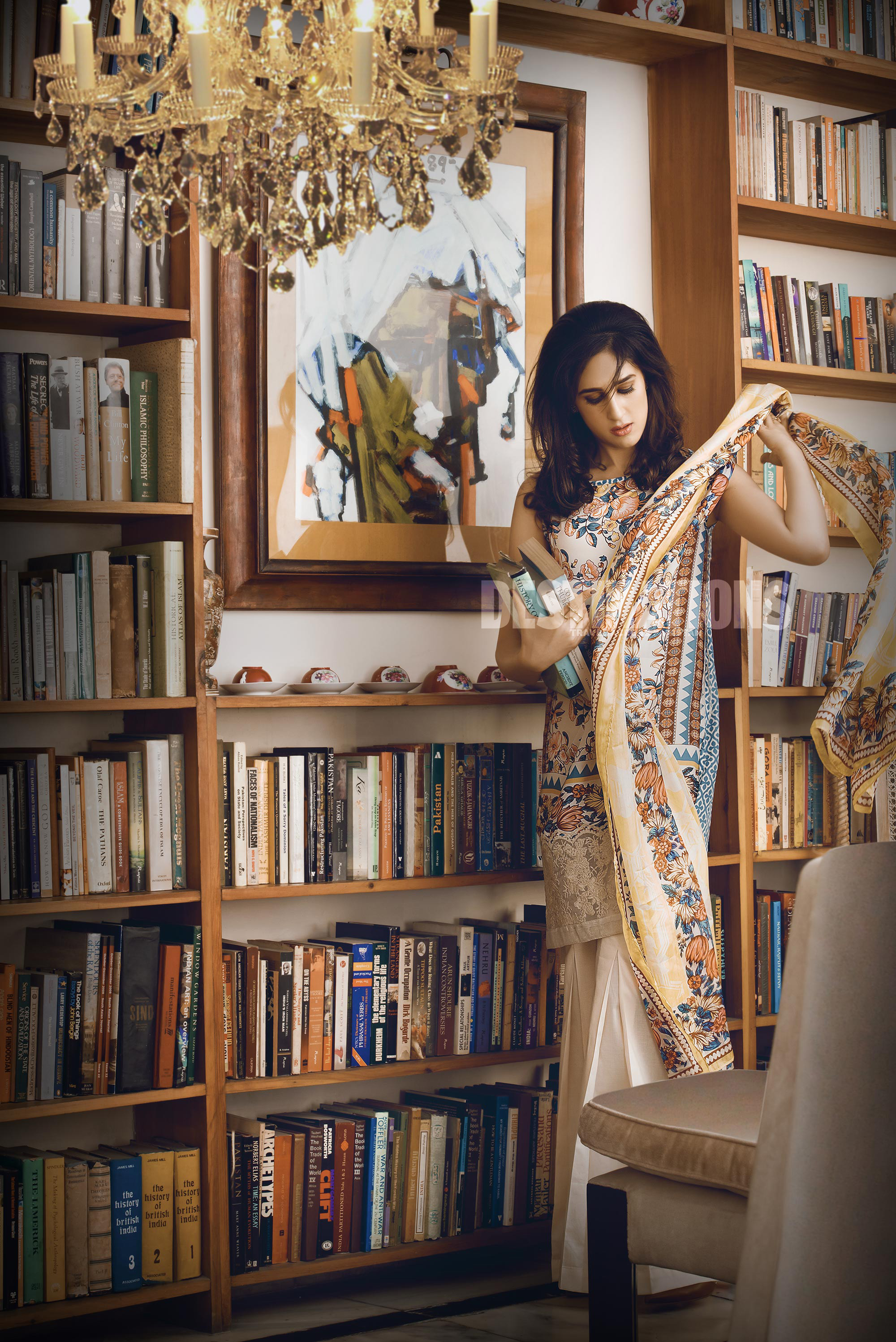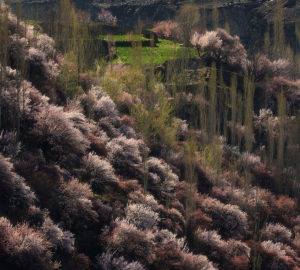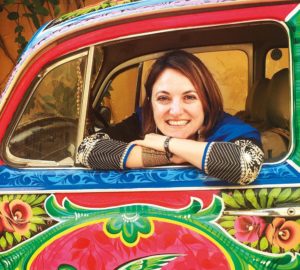Mira Sethi is a talent force that defies boundaries. A former Robert L. Bartley fellow with a bachelor’s degree in English and South Asian studies from one of the best liberal arts colleges, Wellesley, she is now back home in Pakistan, making her mark as an actress and a model. In the meantime, this former assistant books editor at The Wall Street Journal continues to write short fiction which is soon to be published by publishing giants, Knopf and Bloomsbury. Here she talks about her foray into acting, her immense love for being an actor and what compelled this NY-based writer to move back to the motherland.
Having worked at The Wall Street Journal as assistant books editor in addition to being the daughter of of highly acclaimed journalists and publishers, Najam Sethi and Jugnu Mohsin, it seems your career path as heiress of a print empire was almost charted for you. When and how did you steer away towards the performing arts?
I’d always wanted to act. Writing was something I could always do in my own time, but I needed a professional/institutional outlet for acting. So I moved back home and never looked back. I’m an artist; being an heiress of a print empire doesn’t interest me as a career-end.
A former Robert L.Bartley fellow, you hold a bachelor’s degree from one of the leading liberal arts colleges, Wellesley College, where you studied English and South Asian studies. Like Hillary R. Clinton, you were also a Comme-ncement Speaker at your Graduation ceremony there; the only Pakistani to have that honour. Tell us about your academic years and how they continue to help you shape your life.
Giving the commencement speech at Wellesley is, to date, an achievement and a memory very dear to me. Six years down the line folks still write to me remarking how inspirational the speech is. My academic years are central to my approach in living life: they taught me rigour, discipline, but also nudged my pursuit of beauty – in writing, art, and in life.
Your debut collection of short stories in fiction has been picked up by publishing giants Knopf and Bloomsbury. Slated for a 2018 release, the book has already got the literary circuit buzzing. Are you excited? Is there a particular theme the stories are based on? Does your acting experience play a role in your writing?
Thanks for the kind words. I’m hugely excited. The stories are urban tales of love and identity and aspiration. They upend, I think, entrenched notions of what it means to be Pakistani. I can’t say more at the moment, but I am very excited for my baby, my book, to make its way into the world next year.
How do you manage to juggle your time between acting and writing? What is your closer to your heart?
Very good question. I’d say the actor in me is the extroverted side of my personality; the writer the introvert. They buoy one another in a beautiful way. For example, my friends always joke that I’m always the first to leave a party. It’s true. I arrive, and I’m happy to be out and energized, but after a while, there is a silent, pressing need to be alone: that’s the writer in me.
Acting has expanded my social horizon in an incredible way: I meet folks from all over Pakistan, I spend intense bursts of time with them (actors typically work twelve hours a day), and, most importantly, acting has led to a love affair with Urdu. I am so grateful for that.
Your work-out photos are inspiring! When and how did you get into fitness training and why is it so important to you?
Hah, thanks! I started working out when I was in New York. When I’m not shooting, I try and go to the gym four days a week. The energy is infectious! I love pushing myself.
You are a great mimic, a talent you most probably inherited from your mother. You have imitated not only famous politicians on TV but also your own father. How does he react to that?
He chuckles: “Miru, very naughty.” I guess it’s because my mother also doesn’t spare him. We’re all mimics in the family, and the coin of communication in our extended family is often humour, parody, satire. After all, we live in Pakistan: gotta keep things light in order to survive!
Mira, you’re fluent in Punjabi. Many people shy away from teaching their children their regional language. How do you feel about that?
I’m so grateful to my mother for speaking Punjabi with Ali and me when we were young. It’s a great asset. It boggles the mind as to why folks don’t teach their kids regional languages. To each his own, I suppose, but Punjabi brings out the desi kurri in me!
You’ve been published in prestigious publications like The New York Times and The Caravan. How would you define yourself? As an actress or a writer? Is there more prestige in being one over the other?
As I said earlier, I think of myself as an artist. Sarmad Khoosat both acted in and directed Manto; Adnan Malik directs television commercials but also acts for the screen. They’re not mutually exclusive. I am very lucky to be both a writer and an actor.
You studied at the best colleges and had a great job with an international publication but decided to come back and live and work in Lahore, Pakistan. What is it about being home that inspires you?
Everything: the food, the culture, the languages, the immersion in my career, the proximity to my parents, my home, my bed; Lahore on a thundering night, Karachi’s breeze, Lahore’s warmth, Karachi’s freedom; my friends, my grandparents, my colleagues, our collective aspirations; Pakistan’s burgeoning film industry, Pakistan’s landscape, its wounds and difficulties and being able to lend a helping hand in the healing of those wounds and difficulties. I forget who said that “intelligent criticism is in fact the highest form of patriotism.” And I think having a clear-eyed sense of this country but at the same time wanting desperately to do something beautiful and inspirational for Pakistan is what makes me want to live here.
What exciting projects are you currently working on?
Several! More later when the news is “official.”


